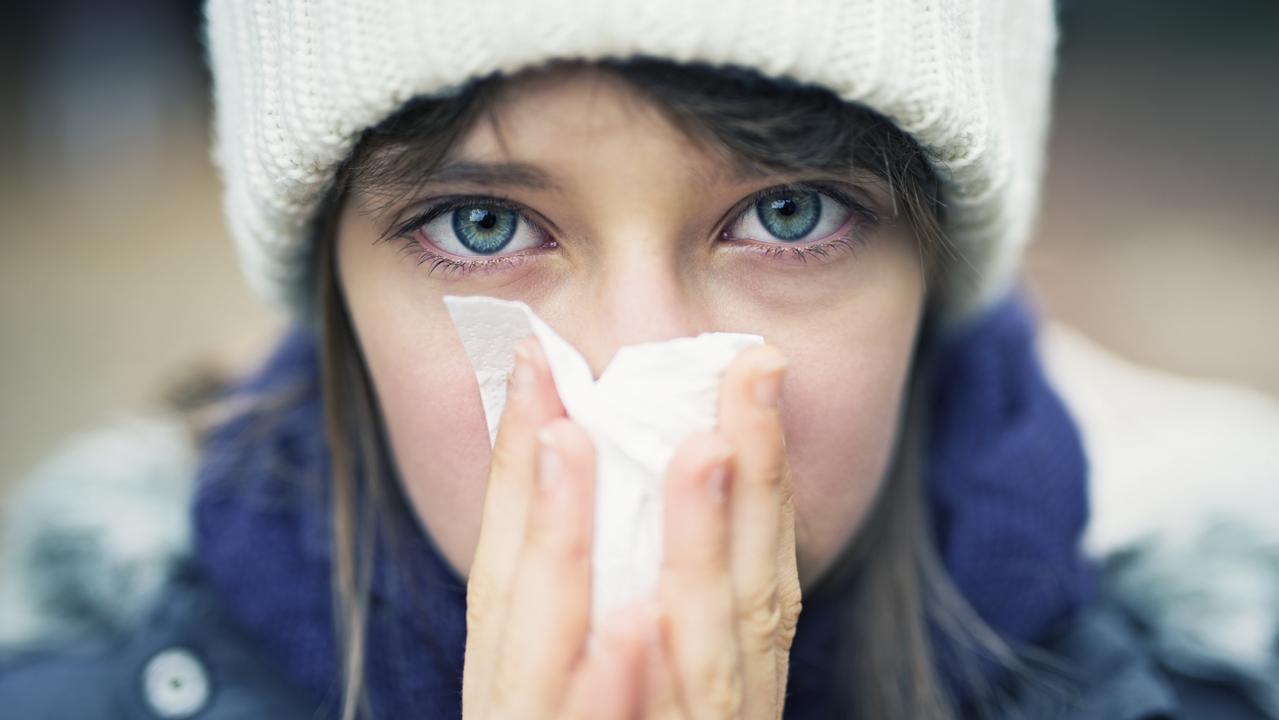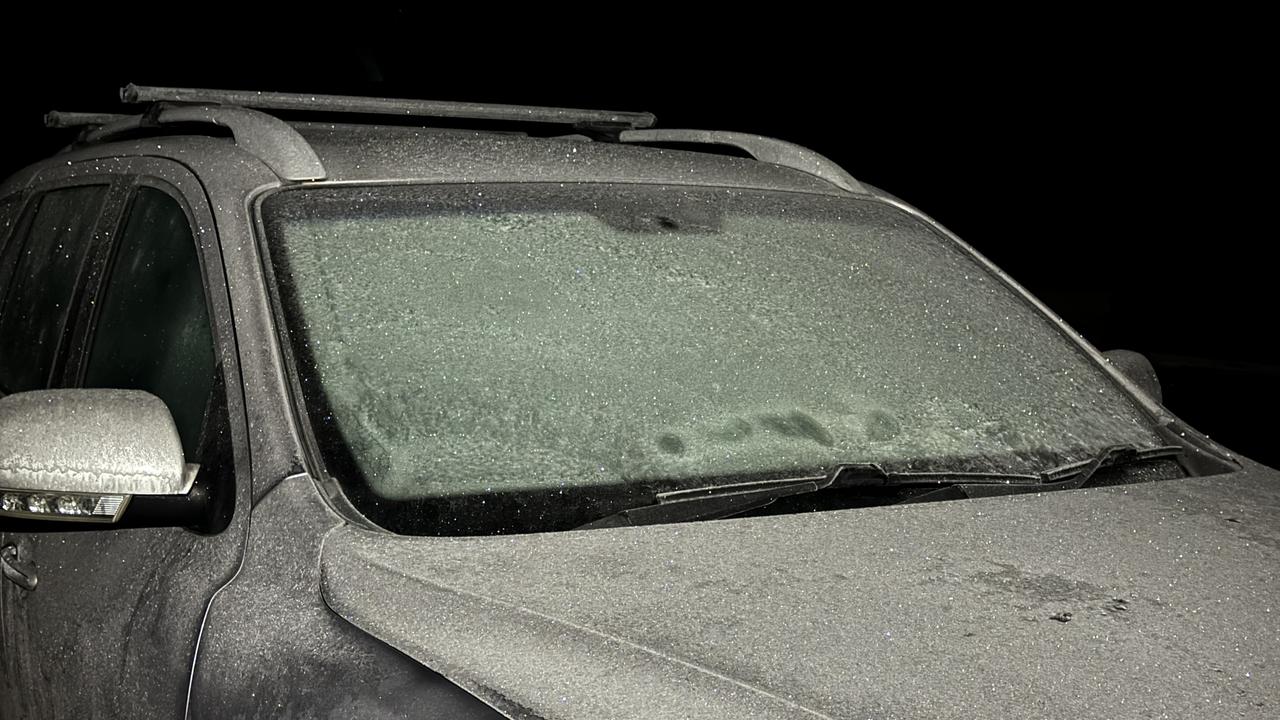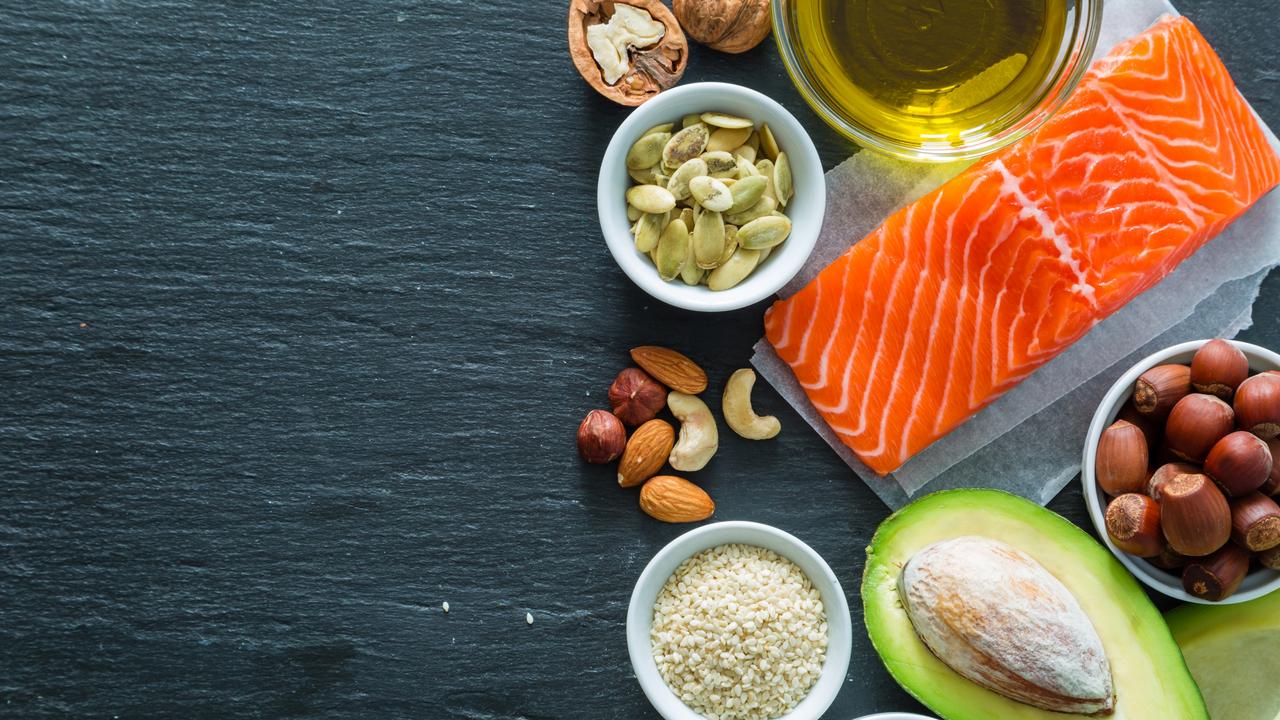Why do we get so sick in the winter time?
As Australia experiences some of its coldest days on record, Dr Zac reveals why we get so sick in the winter and what to do about it.

Welcome to Ask Doctor Zac, a weekly column from news.com.au. This week, Dr Zac Turner explains why we get sick more often in the winter.
QUESTION: Hi Dr Zac, I feel like our whole family has been sick for weeks now and we’re not even halfway through winter. Why do my kids seems to get more sick when it’s cold and what can I do to help prevent the whole family being sick all winter? – Donna 41, from Doonan
ANSWER: Australia is experiencing some of the coldest days on record, leaving parents asking: Why do kids get more sick when it’s cold, and how can we prevent the inevitable onslaught of coughs and colds? Surely they must be related as every year I think our whole family of six get the same colds on repeat.
The cold truth is that kids and adults do indeed often get sicker in winter. I often get asked these types of questions in clinic when parents come in with 2-3+ kids in tow and the whole family are sniffling and coughing. Most often the blame is laid at the kids in daycare just due to the difficulty in preventing the spread of germs sometimes in those environments. There are a number of reasons why winter is worse than summer that I’ve detailed below.
1. Survival of viruses in cold weather
Increased Stability: Many viruses, like influenza and rhinoviruses, thrive in colder temperatures and low humidity with their replication being better between 34-36C. The cold air preserves the lipid membrane of these viruses, making them remain infectious for longer periods. The cells in our body however, function far more effectively at higher temperatures 37-39C. This is one of the reasons why our bodies raise the resting temperature i.e. fevers when we’re sick.
Transmission Efficiency: Cold, dry air facilitates the transmission of respiratory viruses. Lower humidity allows virus particles to stay airborne longer, increasing the likelihood of inhalation by a new host. This is a great reason why we should try and get outdoors as the sunlight is a great killer of most viruses.
Virus Replication: Viruses, including the common cold and influenza, replicate more efficiently at cooler temperatures. Keeping the body’s core temperature warm can inhibit viral proliferation. This is one of the reasons why I tell parents to try and get the whole family being active in winter. Make sure though that once you stop moving and exercising that you rug up again and don’t get cold.

2. Physiological effects of cold air
Inhaling cold air can cause cold air induced bronchoconstriction, narrowing the airways, making it easier for respiratory viruses to establish infections. This effect is particularly severe in individuals with pre-existing respiratory conditions like asthma. If this is you make sure you get into your GP to come up with an asthma action plan.
Cold air also dries out the mucous membranes in the respiratory tract, reducing their ability to trap and eliminate pathogens. This dryness can also make the mucosa more susceptible to = viruses getting into our bloodstream.
3. Immune system response
Cold weather can suppress the immune system. Cold air causes vasoconstriction, reducing blood flow and immune cell delivery to the nasal mucosa, impairing the body’s initial defence mechanisms. Immune response enzymes work best at normal body temperatures. A drop in temperature can slow these reactions, impairing the immune response. Reduced sunlight exposure during winter leads to lower vitamin D levels, crucial for a well-functioning immune system. Lower vitamin D levels weaken the immune response, making individuals more susceptible to infections.
4. Behavioural factors
People spend more time indoors during cold weather, increasing close contact and the potential for virus transmission. Poor ventilation in indoor environments further facilitates the spread of infectious agents. Regular physical activity boosts the immune system, but people are generally less active during cold weather, weakening immune defences and increasing vulnerability to infections.

How to keep your kids healthy this winter
1. Dress appropriately
Do: Wear multiple layers to trap heat and provide insulation. Start with a moisture-wicking base layer, add an insulating layer like fleece, and finish with a waterproof outer layer. Keeping warm is crucial as viruses replicate more efficiently at cooler temperatures, and maintaining body warmth can inhibit viral proliferation.
Don’t: Wear cotton as the base layer, as it retains moisture when wet, making you feel colder and less able to fend off infections.
2. Keep warm and dry
Do: Use scarfs, hats, gloves, and proper footwear to protect extremities and maintain body warmth. Ensure outer layers are waterproof to stay dry. Staying dry helps prevent cold induced bronchoconstriction, which makes it easier for respiratory viruses to establish infections. Don’t: Stay in wet clothes; change out of wet clothing as soon as possible to prevent heat loss and maintain the body’s defence against infections.
3. Maintain good indoor air quality
Do: Use humidifiers to maintain indoor humidity levels. This helps keep respiratory tract mucosa moist and functional, reducing the likelihood of viral infections.
Don’t: Spend extended periods in crowded, poorly ventilated indoor spaces, as this increases the risk of virus transmission due to the concentration of airborne virus particles.
4. Boost vitamin D levels
Do: Consider vitamin D supplements during the winter months or seek foods rich in vitamin D (e.g., fatty fish, fortified dairy products) to support your immune system. Vitamin D is crucial for a well-functioning immune system and helps enhance the pathogen-fighting effects of white blood cells. Don’t: Rely solely on sunlight exposure for vitamin D during winter, as it may not be sufficient due to reduced daylight hours and weaker sunlight.

5. Stay physically active
Do: Engage in regular exercise to boost your immune system. Opt for indoor activities if it’s too cold outside. Regular physical activity helps maintain a strong immune response and reduces susceptibility to infections.
Don’t: Avoid physical activity altogether; even light exercise can enhance immune function. However, avoid overly intense physical activity which can lead to temporary suppression of immune function.
6. Practice good hygiene
Do: Wash your hands regularly with soap and water, and avoid touching your face to reduce the risk of viral transmission. Good hygiene practices help prevent the spread of viruses, especially in close-contact environments.
Don’t: Ignore basic hygiene practices, especially in public spaces where the likelihood of encountering viruses is higher.
7. Stay hydrated
Do: Drink plenty of fluids, even if you don’t feel thirsty, to keep mucous membranes moist and functional. Proper hydration supports the respiratory tract’s ability to trap and eliminate pathogens.
Don’t: Skip hydration just because it’s cold; your body still needs fluids to maintain health and effective immune function.

Got a question?Email
askdrzac@conciergedoctors.com.au
Follow Dr Zac at https://www.instagram.com/drzacturner
Dr Zac Turner is a medical practitioner specialising in preventative health and wellness. He has four health/medical degrees – Bachelor of Medicine/Bachelor of Surgery at the University of Sydney, Bachelor of Nursing at Central Queensland University, and Bachelor of Biomedical Science at the University of the Sunshine Coast. He is a registrar for the Australian College of Rural and Remote Medicine, and is completing a PhD in Biomedical Engineering (UNSW). Dr Zac is the medical director for his own holistic wellness medical clinics throughout Australia, Concierge Doctors.






